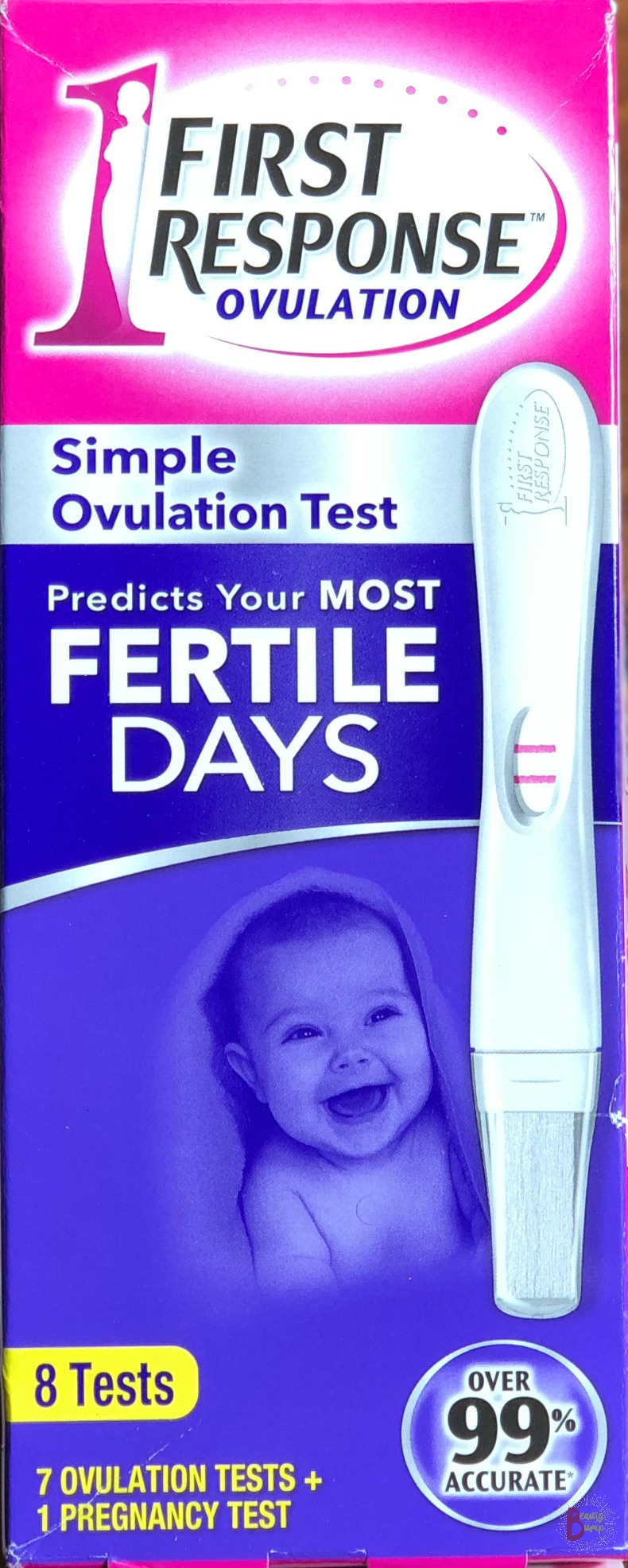This is a sponsored post in partnership with First Response. All opinions are my own and are honest. Affiliate links.
You made it here because you have decided to work on getting pregnant. Trying to get pregnant can be easy for some people and for other women, it can be challenging and stressful. The latter can be due to bad timing or other complications, for which you should talk to your doctor about. In any case, there are things you should do to help improve your chances of getting pregnant and taking charge of your fertility.
Below are a few tips to consider during your journey to getting pregnant.
1. Stop Taking Birth Control
This seems like a no-brainer, but if you are trying to get pregnant you shouldn’t use any form of contraceptive. If you are taking birth control, stop taking it at least 3 to 6 months before trying to conceive depending on how long you have been on the contraceptive.
2. Upgrade your Multivitamin
Upgrade your multivitamin to a prenatal vitamin or vitamin that is specifically for women trying to conceive. This should be done at least three months before you start trying to get pregnant to ensure your body has the nutrients needed to produce and support a healthy pregnancy. These include folic acid (folate), vitamin B6, DHA, Omega 3 fatty acids and more.
3. Improve Your Diet with Fertility-Friendly Foods
The best sources of vitamins come from whole foods such as fruits and vegetables. Incorporating more of these, along with whole grains can help boost your fertility and increase your chances of getting pregnant.
4. Understand Your Menstrual Cycle
I just want to say that not everyone has a textbook 28-day cycle. Knowing when your period begins and ends, your most fertile time, and when you ovulate is an important step to helping you get pregnant.

The First Response Ovulation Kit makes it easy to pinpoint your LH surge by providing a clear indicator with two dark pink lines so you’ll know your two most fertile days, and exactly when to do the deed.

5. Use a Sperm-friendly Lubricant
Now that you know when to do the deed there is something else you should do or should I say use to increase your chances of getting pregnant. That is, using a sperm-friendly lubricant like Pre-seed from the makers of First Response.

Not all lubricants are created equal and some can limit the motility of sperm; however, Pre-seed does the opposite. It is pH-balanced and isotonic, and mimics fertile cervical mucus, enabling sperm to freely swim.
6. Do the Deed Every Other Day
Studies show that couples who have sex every one to two days conceive more quickly than those who have sex every three to four days. Basically, you should have sex every other day during your fertile period.
7. Put Your Butt Up
Although there is really no evidence supporting a specific position being more beneficial to getting pregnant over another one, as long as it is a position that helps place the sperm close next to the cervix. But in the words of my OB/GYN and Two Live Crew, “Face down A$$ Up”.
8. Raise Your Pelvis
After you are done doing the deed, you can rest assured that no extra work to retain the sperm necessary to conceive is needed. But, if you are nervous that the sperm is leaking out of your body and is being wasted, you can lie down on your back with a pillow under your hips for at least 15 to 20 minutes after doing the deed.
9. Take a Pregnancy Test
Even though you may feel what seems like pregnancy symptoms, such as sore breasts, nausea, fatigue, etc., and it has not quite been two weeks since ovulation, you should still wait to test. Yes, wait! Sometimes taking pregnancy tests too early can lead to disappointments. There are things you can do to keep yourself distracted during the two-week wait (TWW), but if you really can’t wait, then the First Response Early Result Pregnancy Test allows you to test for pregnancy 6 days sooner than your missed period (5 days before the day of expected period).

Trying to get pregnant comes down to timing, eating the right foods and taking care of your body, and using the right products. However, if after 6-months to a year of trying to get pregnant without success, consider visiting a reproductive endocrinologist. Additionally, if you have any health issues like irregular or absent periods, PCOS or endometriosis, a history of pelvic inflammatory disease, or a strong family history of infertility or recurrent pregnancy loss, visit a fertility specialist immediately.
Click here for savings on First Response products.
Comment below & share your tips for getting pregnant.
This is a sponsored post in partnership with First Response. All opinions are my own and are honest. Affiliate links.
